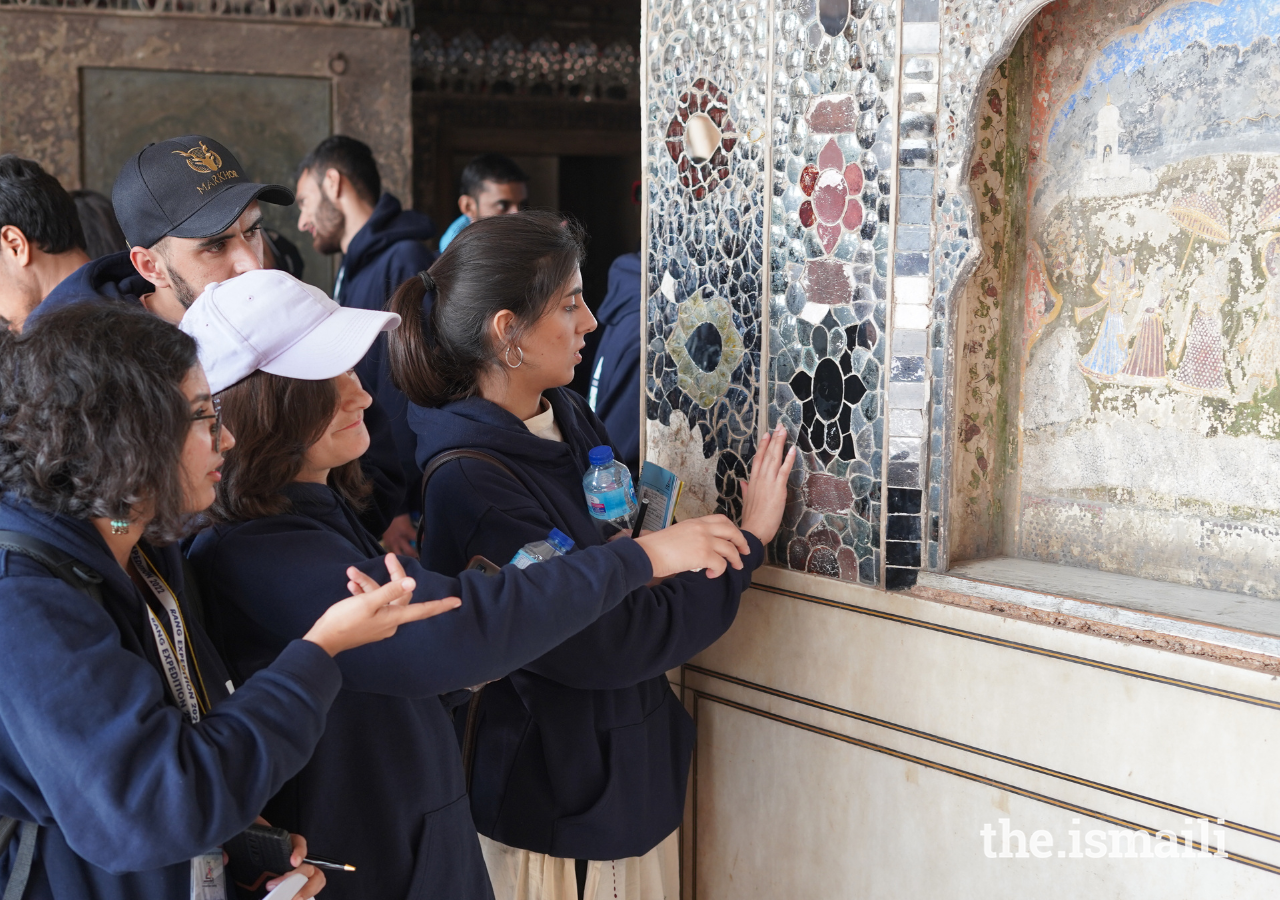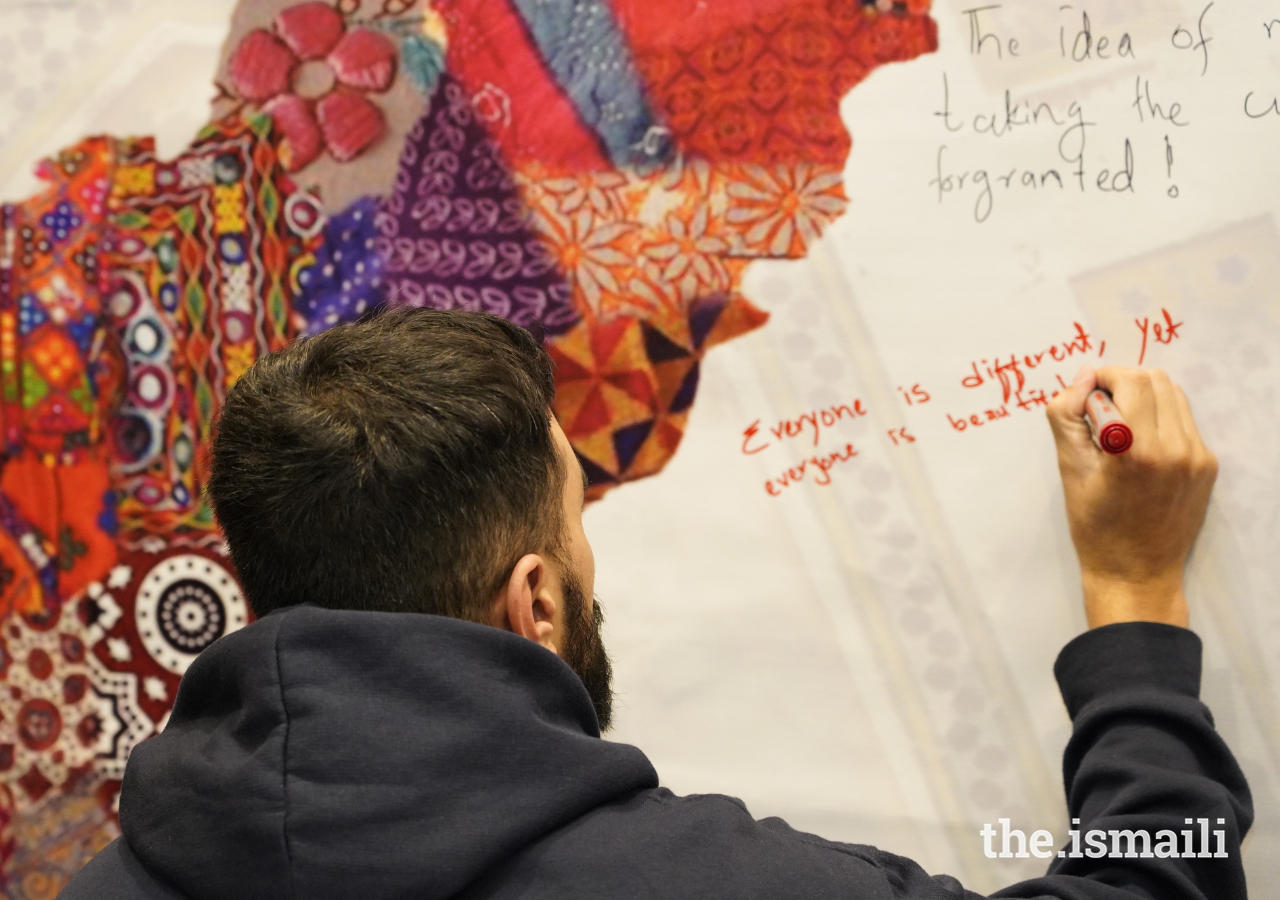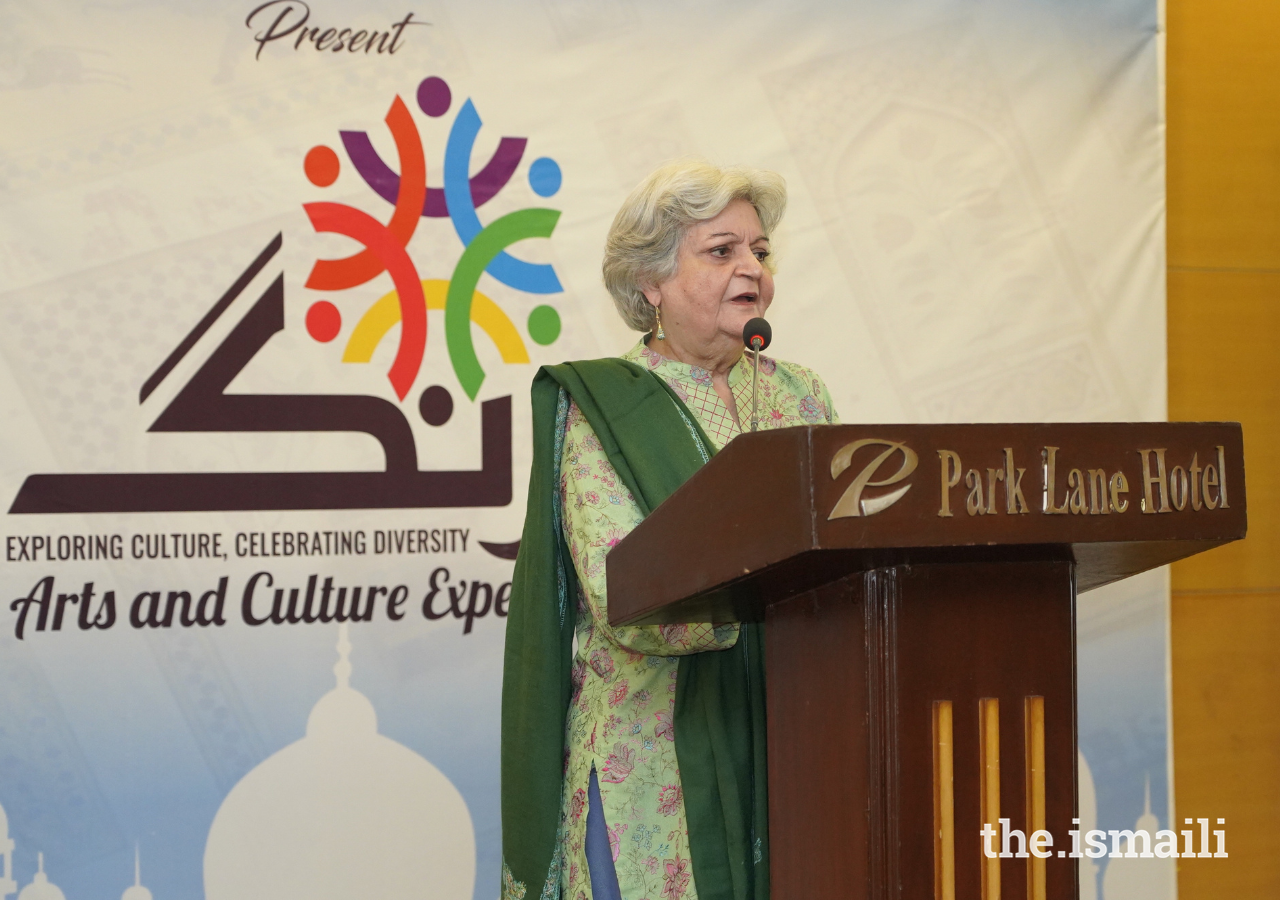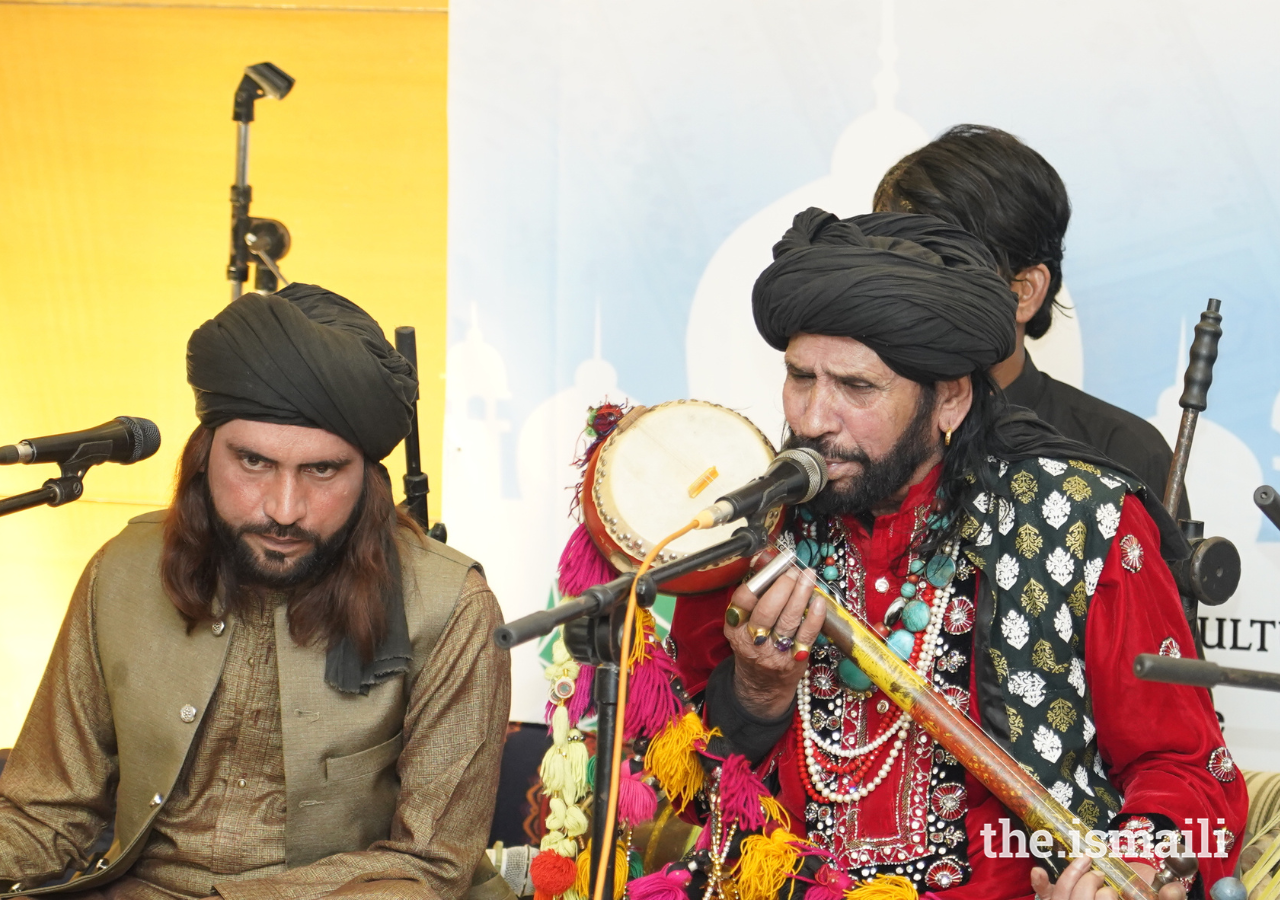Drawing inspiration from the guidance of Mawlana Hazar Imam, the programme aimed to promote a greater sense of cultural awareness amongst the diverse youth of the Jamat in Pakistan. Through the work of the Aga Khan Trust for Culture (AKTC), the initiative also offered participants an opportunity to observe the transformative impact of cultural revitalisation on the overall development of communities.
Organised via a partnership between ITREB for Pakistan and AKTC’s Education Programme, the Rang Arts and Culture Expedition offered participants an immersive cultural experience that included revitalisation projects, guided heritage tours, and arts-based workshops.
These core elements were integrated with additional sessions on cultural identity, pluralism, and development led by AKTC leadership and renowned speakers, including Shiraz Allibhai, Deputy Director of AKTC; Professor Raj Isar, Director of AKTC’s Education Programme; and Professor Salima Hashmi, member of the Aga Khan Music Awards Steering Committee. The sessions furnished participants with a conceptual framework to enable a better appreciation of the various immersive elements on offer at the expedition.
Heavily influenced by the IIS’ secondary curriculum, the expedition’s organisers hoped to facilitate the participants’ ability to situate their identities within a broader context and introduce them to the various creative pursuits that have manifested in Muslim societies and civilizations over time.
The presence of numerous Mughal-era cultural heritage sites made Lahore an ideal place for the programme's 49 participants to be inspired by the rich grandeur of the region’s past. Through guided heritage tours, the group journeyed through some of the celebrated landmarks in the Walled City of Lahore, including the Lahore Fort, the Wazir Khan Mosque, and the Shahi Hamam.
“The guided tours to the historic sites organised by the Rang Team helped me to appreciate the rich cultural legacies of the Muslim civilizations.,” a programme participant, Kainaat Haider Ali, commented. “The best parts about these guided tours were the dialogues with field experts working on the conservation of these sites. Through these conversations, I discovered how meticulously AKTC preserves our cultural heritage to inspire and educate the present and future generations”
One of the expedition’s highlights was the evening programming, in which participants celebrated diverse cultural traditions ranging from the musical rendition of mystical Sufi poetry by a folk singer, to the performance of the centuries-old tradition of qawwali. World-renowned artists such as Ustad Saieen Zahoor, recipient of the Aga Khan Music Awards 2022 Special Mention; and Qawwal Ejaz Sher Ali Khan, finalist of the Aga Khan Music Awards 2019, shared their musical talents.
“Evening programmes have left a life-changing spark in me,” one of the event participants, Arishah Wadani, elaborated. “The Sufi music performance by the singer Saieen Zahoor caused me to reflect on the region’s often unheard music. I was privileged to have exposure to indigenous musicians like him — his musical note on ‘Allah hu’ still whispers in my ears.”
The Rang Expedition also had an aim to inspire and equip participants to be leaders and independent learners capable of solving real-life cultural issues in their communities. To facilitate this vision, participants worked on a Cultural Revitalisation Project (CRP) to address pressing, real-life cultural issues in their communities.
“The CRP gave us the platform to critically analyse the problems faced in our culture and collaborate with other participants to design possible solutions,” a participant in the expedition, Laila Mehreen, expressed. “The entire process was characterised by curiosity as we tried to understand the problem, empathise with beneficiaries, and search for the most impactful and sustainable solutions. Interaction with other participants also made me realise that we have the potential to collectively make the world a better place.”
As the expedition came to a close, participants shared the drive to become change agents in their communities and implement CRPs in their communities. Current projects include the preservation of cultural values through digitising folklore, protecting traditional embroidery skills to empower women economically, and restoring traditional residencies using local, environmentally-friendly materials.












